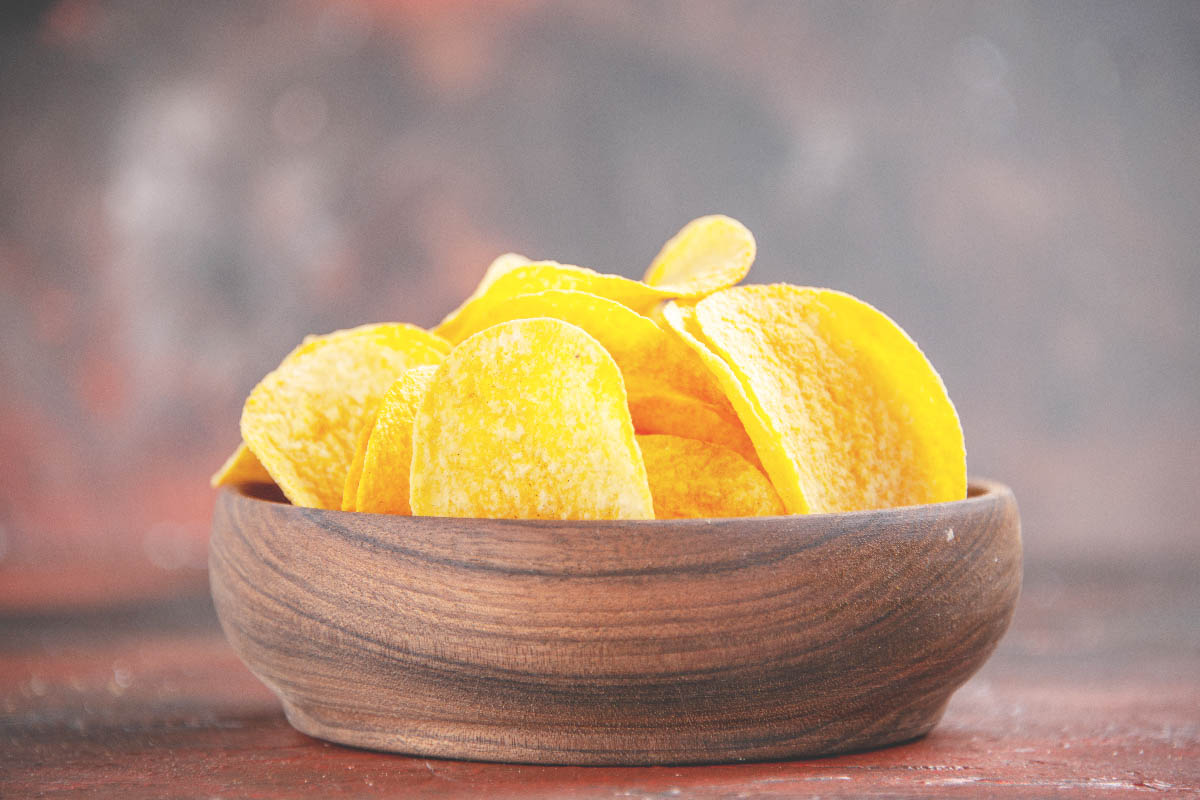
Recently, I discovered the story of how potato chips, an extremely popular snack, were first created. There was once a period in the past when French Fries were considered a very sophisticated dish, and served as a staple in all the high-end restaurants. One such restaurant was the Moon Lake’s House in Saratoga Springs, New York. One day in 1853, when a prestigious individual visited the restaurant and ordered a serving of French Fries, he found that they were not crispy enough, and returned them to the kitchen to be remade. At this time, George Crum, who was the chef, remade the dish and served it to the diner.
However, the French Fries were still found to be unsatisfactory and returned to the kitchen. After this exchange was repeated over and over several times, Crum finally became irritated enough to make a very strange decision. Instead of preparing the potatoes to make French Fries, he cut them into paper-thin slices and fried them until they were extremely crispy. George Crum’s true intention was to embarrass the picky diner by forcing him to eat the food using his hands, since something as crispy as potato chips could not possibly be handled with cutlery. In a setting where it was considered beyond inappropriate to eat with one’s hands, this seemed to Crum, a perfect plan for revenge. Strangely enough, this new, crispy dish actually pleased the diner instead of embarrassing him. Slowly, Crum’s potato chips were popularised and sold all over the world. We still continue to enjoy this snack to this day.
A few instances of repetition were all it took for Crum’s mind to produce an amazing creation that has not lost its delightfulness despite having been made more than a century ago. Repetition may seem unnecessary, especially when one is young, and the world seems much too interesting to be stuck doing a single activity.
During times when it may seem like you are repeating the same thing every day or are stuck in a boring routine, it may be helpful to remember a quote from German dancer, Pina Bausch – “Repetition is not repetition… the same action makes you feel something completely different by the end.”
It is easier to picture a beautiful painting on a blank wall than on one that is already saturated with colours and shapes. All of us are in the pursuit of proficiency and perfection in some area, even if it may not seem like it at first glance. Being in a similar environment for repeated periods of time allows space for us to grow before we are experienced enough to handle great changes and new opportunities. Mastering your seemingly mundane routine might just prove to be the most important step in the process of your growth.






